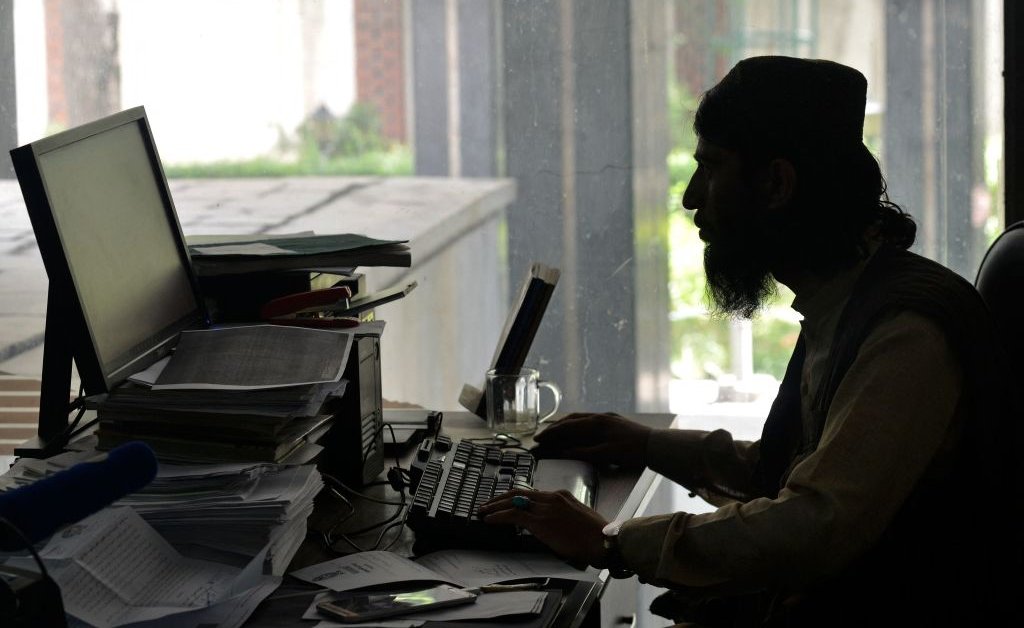
Almost two years after the Taliban’s takeover of Afghanistan, the jihadists who transitioned from the battlefields to paper-pushing government jobs in the city are ready to quiet quit.
The Afghanistan Analysts Network, a non-profit policy research organization working to increase the understanding of life in Afghanistan, released a report last month examining how the jihadists who took over Kabul—many of whom arrived in the capital for the first time—were finding city life and their new roles.
Researcher Sabawoon Samim interviewed five jihadists who had spent several years of their lives fighting for the Taliban. “They ranged in age from 24 to 32 and had spent between six and 11 years in the Taliban, at different ranks: a Taliban commander, a sniper, a deputy commander and two fighters,” Samim wrote in his report. “Broadly speaking, all of our interviewees preferred their time as fighters in what they considered a jihad.” Now, the men find themselves shackled with the bureaucracy of running a country as they work civilian jobs and security positions, spend too much time in traffic and on Twitter, and yearn for the tranquility of village life.
“The shift to working within government structures has forced them to adhere to official rules and laws they never faced before. They find ‘clocking in’ for office work tedious and almost unbearable, although some said they were now getting used to the routine,” the report states.
“We couldn’t destroy the Taliban, but office work destroyed the Taliban,” said one Tiktoker, reviewing articles and quotes from the report. Here are the various reasons the interviewees are fed up with a 9-to-5:
Mundane office culture
The former fighters found themselves missing the freedom of the front-lines as they adjusted to the mundane nature of office work. Huzaifa, a 24 year-old former sniper, said, “The Taliban used to be free of restrictions, but now we sit in one place, behind a desk and a computer 24 hours a day, seven days a week. Life’s become so wearisome; you do the same things every day.”
“In our ministry, there’s little work for me to do,” said Abdul Nafi, 25. “Therefore, I spend most of my time on Twitter. We’re connected to speedy Wi-Fi and Internet. Many mujahedin, including me, are addicted to the Internet, especially Twitter.”
And with a 9-to-5 comes the dreaded commute—and actually having to show up for the job in order to get paid. “What I don’t like about Kabul is its ever-increasing traffic holdups.” Omar Mansur, 32, said. ”These days, you have to go to the office before 8 AM and stay there till 4 PM. If you don’t go, you’re considered absent, and [the wage for] that day is cut from your salary. We’re now used to that, but it was especially difficult in the first two or three months.”
Added responsibilities
A Taliban fighter watches as Afghan women hold placards during a demonstration demanding better rights for women in front of the former Ministry of Women Affairs in Kabul on Sept. 19, 2021.
Bulent Kilic—AFP/Getty Images
Government work has come with pressures and responsibilities the men did not prepare for– or particularly want. “In the time of jihad, life was very simple. All we had to deal with was making plans for ta’aruz [attacks] against the enemy and for retreating,” said Huzaifa. “People didn’t expect much from us, and we had little responsibility towards them, whereas now if someone is hungry, he deems us directly responsible for that.”
Abdul Salam, 26, says, “Whatever happens in Afghanistan, people blame us. Even a minor misdeed by us makes it to the media that the Taleban are doing this and that. It’s like the cameras of the entire world are watching us.”
Lack of social lives
Work has heavily cut into their social lives too. “Those in Kabul, like me, work from 8 AM to 4 PM. So, most of the week, we don’t get any time to meet each other” said Mansur.
The camaraderie amongst fighters has dwindled, the jihadists say, as previously non-existent hierarchies are now far more apparent, and many around them get swept up in the pursuit of money. “I sometimes miss the jihad life for all the good things it had,” said Nafi. “During jihad, you couldn’t have known the difference between a commander and a foot soldier like me.”
Kamran, a 27 year-old deputy group commander, longs for the simple life. “Now, when someone’s nominated for a government job, he first asks whether that position has a car or not. We used to live among the people. Many of us have now caged ourselves in our offices and palaces.”
Low pay, high cost of living
During the insurgency, Samim notes that the men did not need to earn money to support their families, as the movement covered their expenses. “The jihad, a religious duty which exempted them from such everyday concerns, is over: they now have to work for the survival of their families like everyone else.”
The high cost of rent and his relative low pay have been a barrier for Mansur, who is not earning enough money to move his family to the city. Salam echoed the high cost of living in Kabul, and said that he missed the freedom of the jihad, with little supervision and a clear purpose.
“There is a proverb in our area that money is like a shackle,” says Salam. “Now, if we complain, or don’t come to work, or disobey the rules, they cut our salary.”
More Must-Reads From TIME














